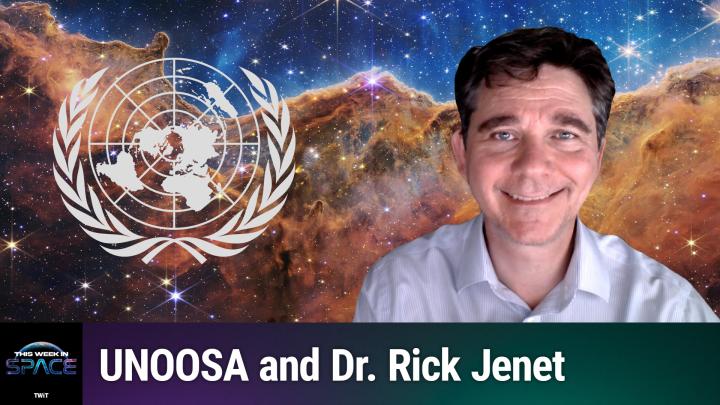

TWiS 171: What's a UNOOSA? - Rick Jenet, the National Space Society, and the UN
The United Nations has mediated conflicts since its founding in 1945. That domain of involvement extended into space in 1967 with the Outer Space Treaty. Today, their role is increasingly active with more and more nations entering space and the private sector getting into the game. The US's space-related branches, UNOOSA (the UN Office of Outer Space Affairs) and COPUOUS (UN Committee on the Peaceful Uses of Outer Space), are busy. Many years ago, the National Space Society gained permanent UN observer status, which is much less passive than the name sounds. The organization has addressed the committees on more than one occasion and is working to influence the policy for space flight positively. Dr. Rick Jenet has been instrumental in these efforts and joins us in explaining the landscape of newspace, international space efforts, and the organization's future initiatives.
Headline
- Space Shuttle Discovery Controversy: Rod and Isaac discuss the proposed $85 million move of the Space Shuttle Discovery from the Smithsonian to Houston, plan that faces obstacles from the Smithsonian, which holds the rights to the shuttle.
Main Topic: UNOOSA & Dr. Rick Jenet
- The National Space Society's UN Observer Status: Dr. Jenet explains that the NSS gained permanent observer status at the UN in 2001. The NSS uses this privilege to inform delegates by providing research and presentations.
- UNOOSA and COPUOS Explained: Dr. Jenet clarifies that UNOOSA organizes the Committee on Peaceful Uses of Outer Space (COPUOS). While UNOOSA maintains a registry of space objects, COPUOS is the body of 104 member states that develops legal frameworks.
- Outer Space Treaty of 1967: Dr. Jenet talks about the Outer Space Treaty, a global treaty dating back to the Cold War era that governs how state actors behave in space. He that the treaty's language on property ownership is being re-examined due to the rise of commercial space activities.
- Space Traffic Management and Orbital Debris: Dr. Jenet highlights that discussions on space traffic management and orbital debris are in their early stages. These discussions focus on basic tenets like coordination and information sharing.
- Lunar Activities and Resource Utilization: The development of policies for lunar exploration and resource extraction is also an area of new activity. UNOOSA's "Action Team for Lunar Activities Consultation," with co-chairs from Romania and Pakistan, coordinates the future of humanity's return to the moon by aligning different national initiatives.
- The "Regulation Sandbox" Concept: Dr. Jenet discusses the "regulation sandbox" concept, where existing regulations for an area with commercial potential, for example a lunar ice deposit, are set aside for a limited time to allow a new set of rules to be tested. This concept could be applied more boradly to space launch or ISRU.
- Why the Public Should Care: Dr. Jenet emphasizes that the public should care about these efforts because these high-level discussions will lead to international laws governing the behavior of all actors in space, including private companies and entrepreneurs. Early awareness of these frameworks will be less painful for startups later on.
These show notes have been truncated due to length. For the full show notes, visit https://twit.tv/shows/this-week-in-space/episodes/171
Host: Rod Pyle
Co-Host: Isaac Arthur
Guest: Fredrick (Rick) Jenet